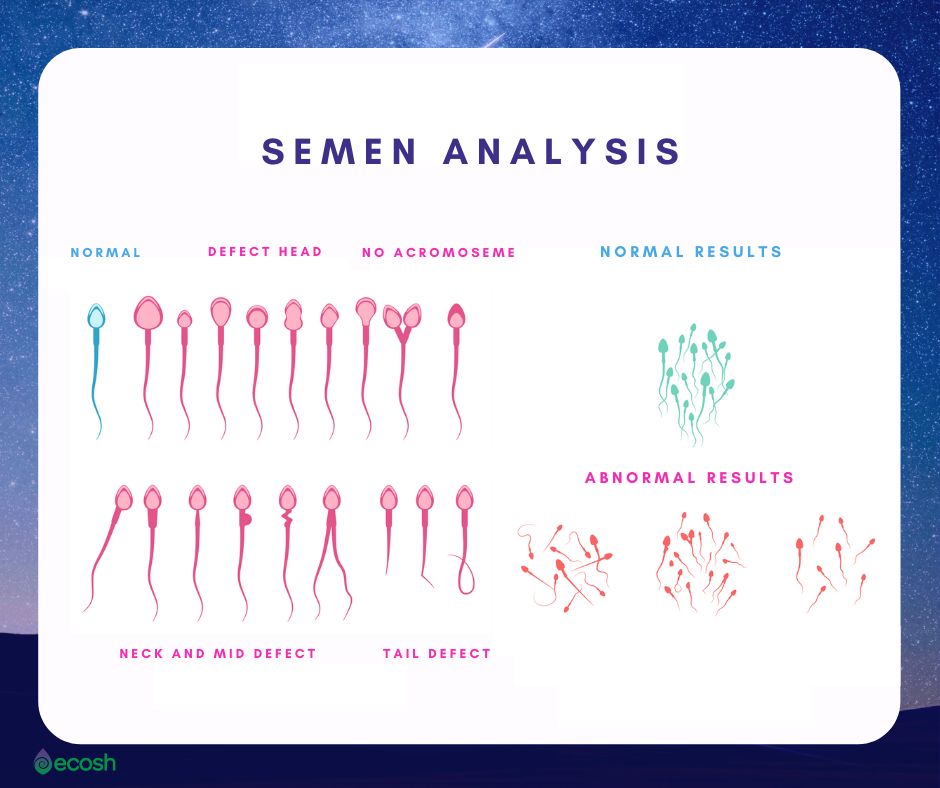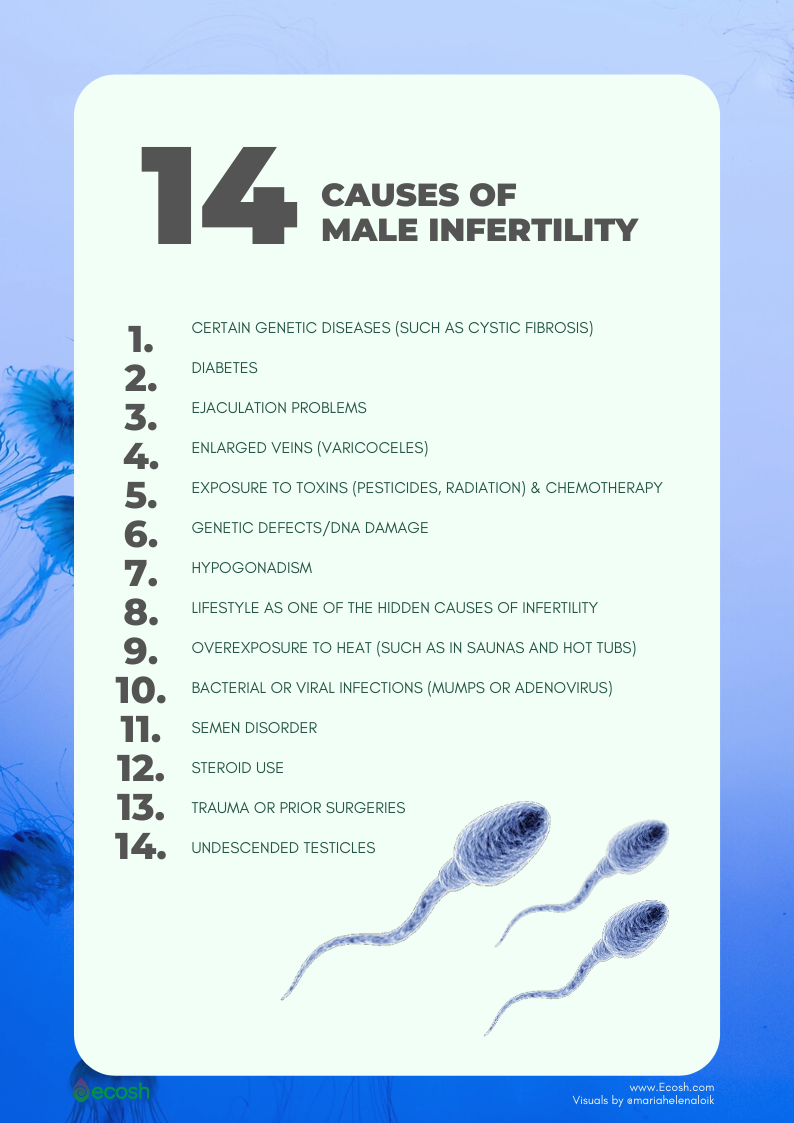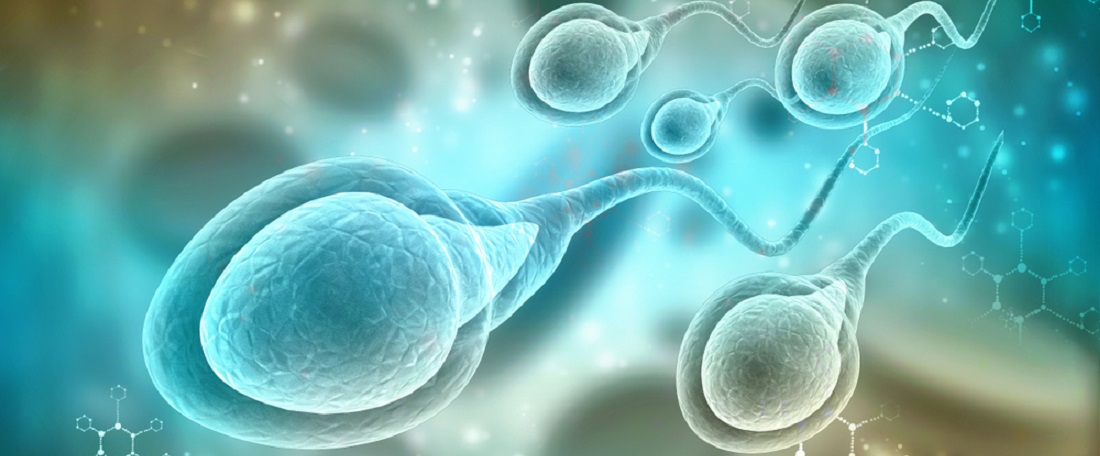There are several natural infertility treatment methods for men, but sometimes even minor lifestyle changes and the right dietary food supplements can help. However, in some cases the changes in your lifestyle cannot help and the causes of the infertility can be more serious, hidden and hard to detect.
So to determine whether you are infertile, and what is the best treatment, you first need to see your doctor who will go over your health history, medications, sexual history, and sex habits. Physical exam and usually also a sperm analysis, will show the health of the sperm.
But, there is no need to worry too early, because infertility is a complication defined as not being able to get pregnant (with frequent intercourse) for at least a year.
In about 80% of couples, the reasons of infertility may be a problem with sperm, blockage of the fallopian tubes or a complication with ovulation. In 5%-15% of couples the reason is unknown, and all the tests are normal.
However, it is a very common and growing concern in today’s society.
For those hoping to conceive, the window is wider than you think. The fertile part of female cycle extends beyond ovulation.
In this article we write shortly about the causes of male infertility and about the natural infertility treatment for men.
Read more about the 14 common causes of male infertility in our previous article: “Infertility – Risk Factors and Causes of Male and Female Infertility.
Common Causes of Male Infertility
Common causes of male infertility can be:
- Trauma or prior surgeries on the testicles or inguinal region
- Ejaculation problems
- Exposure to chemicals like pesticides, radiation, and chemotherapy
- Hypogonadism
- Semen Disorder
- Lifestyle as one of the hidden causes of infertility
- Overexposure to heat (such as in saunas and hot tubs)
- Undescended testicles
- Genetic defects/DNA damage
- Diabetes
- Prior bacterial or viral infections such as mumps or adenovirus
- Enlarged veins (varicoceles)
- Steroid use
- Certain genetic diseases (such as cystic fibrosis)
Read more about the 14 common causes of male infertility in our previous article: “Infertility – Risk Factors and Causes of Male and Female Infertility.
How to Treat Male Infertility Naturally
Infertility Treatment for Men – 12 Lifestyle Change Tips
All these listed minor life style changes below can markedly raise sperm count, which is very helpful even if sperm count is normal. So these are important guidelines from now until after your wife gets pregnant.
1. Avoid soy based foods
Avoid soy based foods (e.g., tempeh, , tofusoy cheese and milk, etc). Even modest intake drop sperm counts by 40%.
2. Avoid heat
Sperm does not like temperatures over 96 °F. So if you expose your testicles to excessive heat for a long time, the volume of semen will decrease. This can be bad news for all sauna lovers and those who work in warm environment, but men should not stay in hot rooms for long periods.
Such a negative effect lasts up to 30 days after being in a hot environment. Therefore, skip the passages in the sauna and hot tub during the fertilization period.
3. Reduce stress
Mental health is essential to our quality of life. Excessive stress and poor and intermittent sleep cause hormonal chaos in the body, which also reduces the chances of having a baby. Adding too much caffeine (> 200 mg) to this equation will further reduce this possibility.
4. Be physically active
Physical activity is very important for fertility as it not only helps to maintain normal body weight, which is directly related to fertility, but also helps to maintain overall health through physical activity.
Specifically, muscle performance is very closely related to your overall health. So it is important that you practice regular physical activities and exercise.
At the same time, you should not over-train. It`s not recommended, as there is a risk of adversely affect the functioning of your hormones. Also, avoid rowing/ski machines, treadmills or jogging unless the testes can hang free.
5. Choose right underwear
Avoid high temperatures by wearing boxer shorts. You should also avoid tight fitting underwear like briefs and tight jeans.
6. Avoid certain medications
Motrin, Aspirin and other similar medications can block the hormone prostaglandin, which is the hormone in seminal fluid that may assist sperm.
Tylenol is okay only in moderation. Avoid also melatonin, Verapamil and Nifedipine (latter two are heart/blood pressure medications) which can cause reversible infertility.
7. Avoid noise and being in unhealthy environment
Also the environment may play a vital role in your overall health. Both mental (noise, traffic) and physical health (air pollution, pesticides, heavy metals) will suffer. In turn, it affects your reproductive health.
It is unrealistic to remove all environmental hazards, but you can reduce their impact one by one. In the long run it will be a significant health gain. Read about how silicons, parabens and other toxic and harmful compounds in your daily skincare products affect hormones, because it can really change your life.
8. Avoid smoking and alcohol
Another major lifestyle-related evil is smoking. Smoking kills, that should be all said. But if that’s not enough, know that it also kills the ovaries and lowers sperm quality. So, avoid alcohol when convenient, and tobacco if able.
9. Avoid estrogen
When convenient, avoid meat with estrogen and get your meat from a natural foods store.
10. Lose weight if needed
Recently defended Estonian doctoral thesis Dr. Kristel Ehala-Alexeyev found that male infertility is associated with overweight. Moreover, this study is the first in the world to find that the negative effects of male overweight and abdominal obesity are greater in men with a smaller testicular volume and that male fertility falls significantly when a man consumes excessive alcohol and has elevated liver enzymes (GGT).
According to a recent doctor, being overweight generally affects the hormonal balance, which is primarily manifested by a fall in testosterone levels. The excess weight also influences female fertility.
11. Avoid exposure to chemicals like pesticides and radiation
There are quite a number of chemical substances in the surrounding environment that have toxic effects – such as in plastic, skincare products, daily hygiene products and pesticides.
Read about how silicons, parabens and other toxic and harmful compounds in our daily skincare products affect male hormones in our previous article.
12. Pick the right oils
- Increase liquid vegetable oils in your daily menu.
- Avoid:
- cottonseed oil, because it may contain gossypol which inhibit sperm function;
- palm oils;
- trans, hydrogenated or saturated fats.
Infertility Treatment for Men – Other Methods
In men, infertility is also treated with:
- Surgery, if the cause is a varicoele (widening of the veins in the scrotum) or a blockage in the vas deferens, tubes that carry sperm.
- Antibiotics to treat infections in the reproductive organs.
- Medications and counseling to treat problems with erections or ejaculation.
- Hormone treatments if the problem is a low or high level of certain hormones.
- ART Treatment for Men and Women is assisted reproductive technology. There are several types of ART:
– IUI (intrauterine insemination): Sperm is collected and the placed directly inside the woman’s uterus while she is ovulating.
– IVF (in vitro fertilization): The sperm and egg are collected and brought together in a lab. The fertilized egg grows for 3 to 5 days days. Then the embryo is placed in the woman’s uterus.
– GIFT (gamete intrafallopian transfer) and ZIFT (zygote intrafallopian transfer): The sperm and egg are collected and quickly placed in a fallopian tube. With GIFT, the both sperm and eggs are placed into the fallopian tube. With ZIFT, the sperm and eggs are united in a lab and then a fertilized egg is placed into the tube..
Summary
Many factors in our lives are essentially pure coincidence, meaning, we may not be able to influence their occurrence with any formula. If fertilization at the first stroke seems unsuccessful, don’t despair.
In half of the cases, pregnancy occurs within the first six months. 80% of couples succeed within one year and 90% within two years.
If you continue to have difficulty with this time, it is advisable to consult with doctor for examination.
At the same time, we should lead a healthy lifestyle in general, because, as we can infer from the previous text, much is in our own hands.
Edited by: Maria-Helena Loik
Sources: My.Clevelandclinic.org, Psychologytoday.com, Webmd.com, Tandfonline.com
Pictures: Pexels.com, Pixabay.com, Shutterstock.com





